Living in a small apartment doesn’t mean sacrificing style, comfort, or functionality. In fact, it presents a unique opportunity to unleash your creativity and design a space that feels both expansive and deeply personal. Forget the idea that tiny spaces are limiting; with the right approach to small apartment design, you can transform even the coziest corners into highly efficient, aesthetically pleasing havens. It’s all about clever planning, smart choices, and a dash of ingenious thinking. Ready to unlock the full potential of your compact living area? Let’s dive into some creative ideas that truly work.
The Art of Decluttering: Less is Truly More
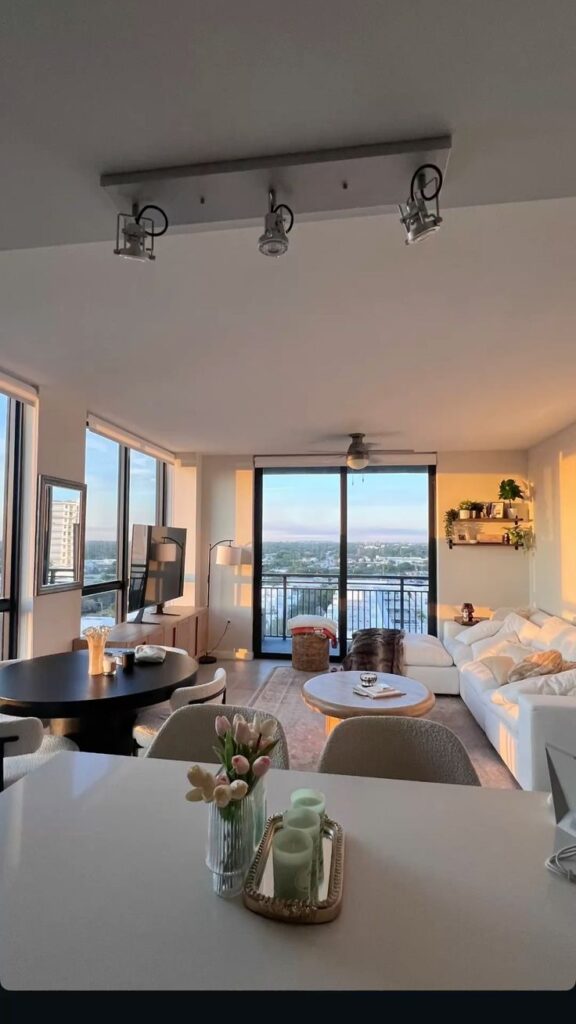
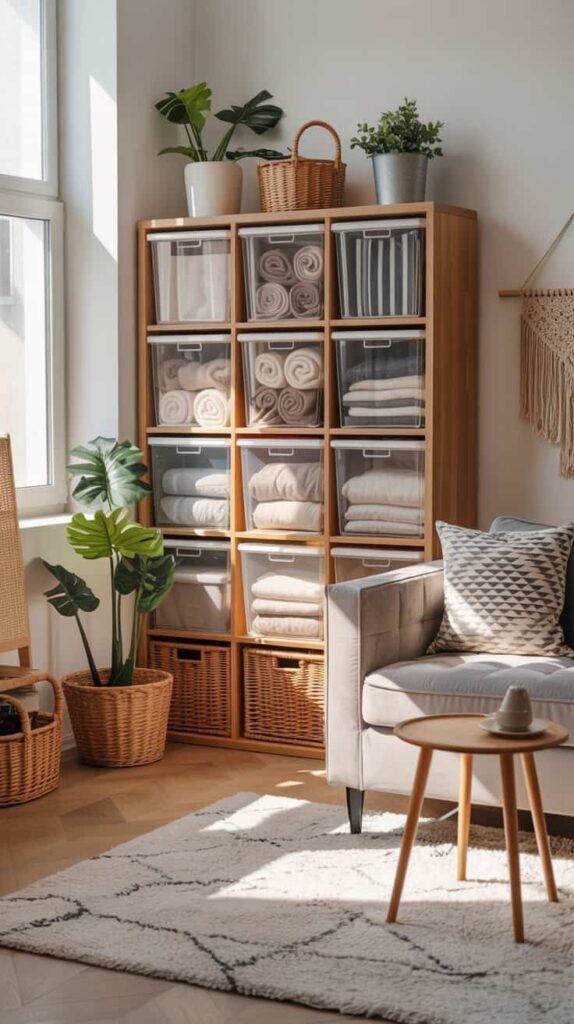
Before you even think about furniture or paint colors, the first and most crucial step in small apartment design is to declutter. A cluttered space instantly feels smaller, more chaotic, and less inviting. Embrace a minimalist mindset, not just for aesthetics, but for practicality. Every item in a small apartment should earn its keep.
The KonMari Method and Beyond
Perhaps you’ve heard of Marie Kondo’s famous “Does it spark joy?” question. This isn’t just a fad; it’s a powerful principle for small spaces. Go through your belongings category by category. If something doesn’t serve a purpose, hold sentimental value, or bring you joy, it’s time to let it go. Be ruthless. Consider donating, selling, or responsibly disposing of items that no longer align with your living goals. This initial purge creates the canvas upon which you’ll build your dream small space.
Digital Decluttering
While physical clutter is obvious, don’t forget digital clutter. An organized digital life can contribute to a calmer mind, which in turn helps you feel more at peace in your physical surroundings. Clean up your desktop, organize files, and unsubscribe from unnecessary emails. A clear digital space often leads to a clearer physical space.
One-In, One-Out Rule
To maintain your newfound spaciousness, adopt the “one-in, one-out” rule. Whenever you bring a new item into your apartment, especially something like clothing, books, or decorative pieces, commit to removing an old one. This prevents clutter from creeping back in and ensures your space remains optimized. This simple habit is a game-changer for long-term organization in compact living.
Mastering Multifunctional Furniture: Your Space-Saving Superheroes
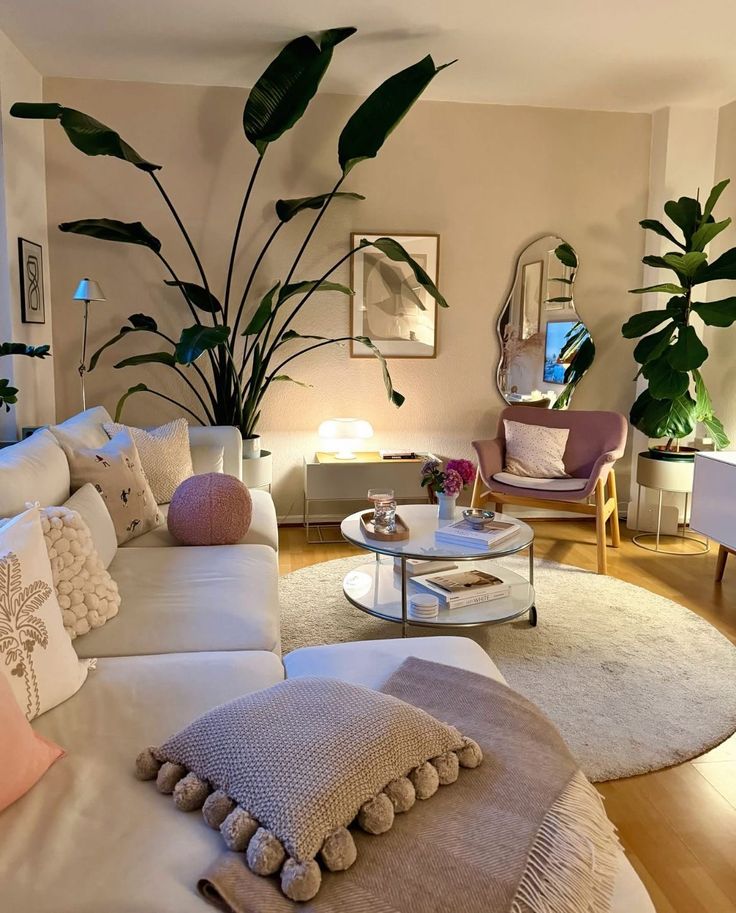
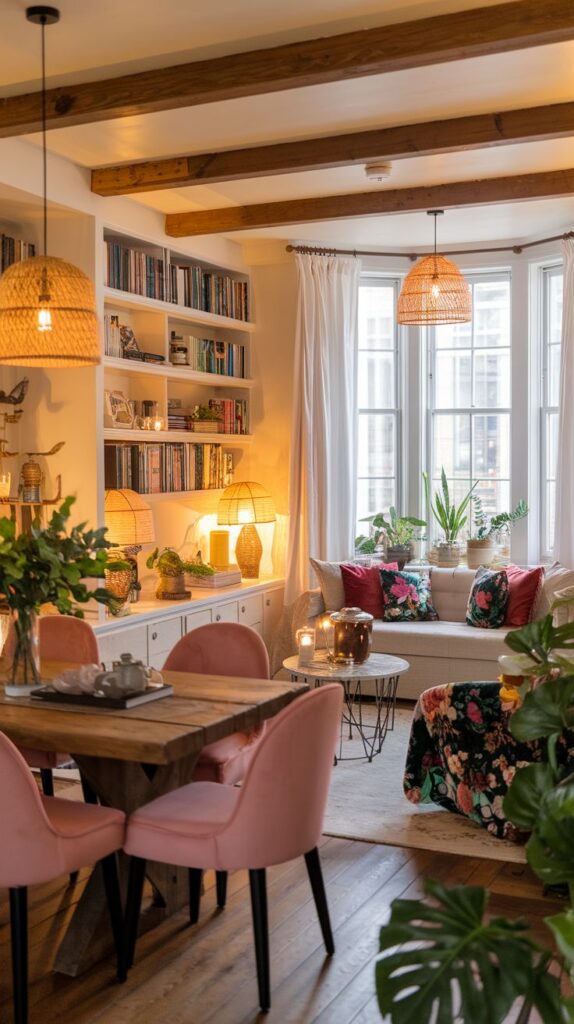
When square footage is limited, every piece of furniture needs to pull double, or even triple, duty. Multifunctional furniture is the cornerstone of effective small apartment design, offering innovative solutions that save space without compromising comfort or style.
Sofa Beds and Daybeds
The days of uncomfortable, creaky sofa beds are long gone. Modern sofa beds and daybeds are stylish, comfortable, and perfect for transforming a living area into a guest room or even your main sleeping zone. A daybed, for example, can serve as a comfy couch during the day and a bed at night, often with built-in storage underneath.
Ottoman Storage and Coffee Tables
Ottomans with hidden storage are brilliant for stashing away blankets, magazines, or remote controls, keeping your living area tidy. Similarly, consider coffee tables that lift up to reveal storage compartments or expand into dining tables. Some even come with built-in seating.
Murphy Beds and Wall Beds
For the ultimate space-saving sleep solution, a Murphy bed (or wall bed) is hard to beat. These beds fold up vertically into a wall cabinet, completely disappearing when not in use. This frees up precious floor space during the day, allowing a bedroom to double as a home office, yoga studio, or entertaining area. Modern designs are often sleek and integrated, looking like built-in cabinetry.
Extendable Tables and Fold-Down Desks
Dining tables that extend or fold away are fantastic for small kitchens or living/dining combos. A small console table can become a dining table for four, or even six, with a simple extension mechanism. Similarly, a fold-down desk attached to a wall provides a dedicated workspace that can be tucked away when the workday is done. Think about how innovative storage solutions can inspire your furniture choices.
Vertical Victory: Going Up, Not Out
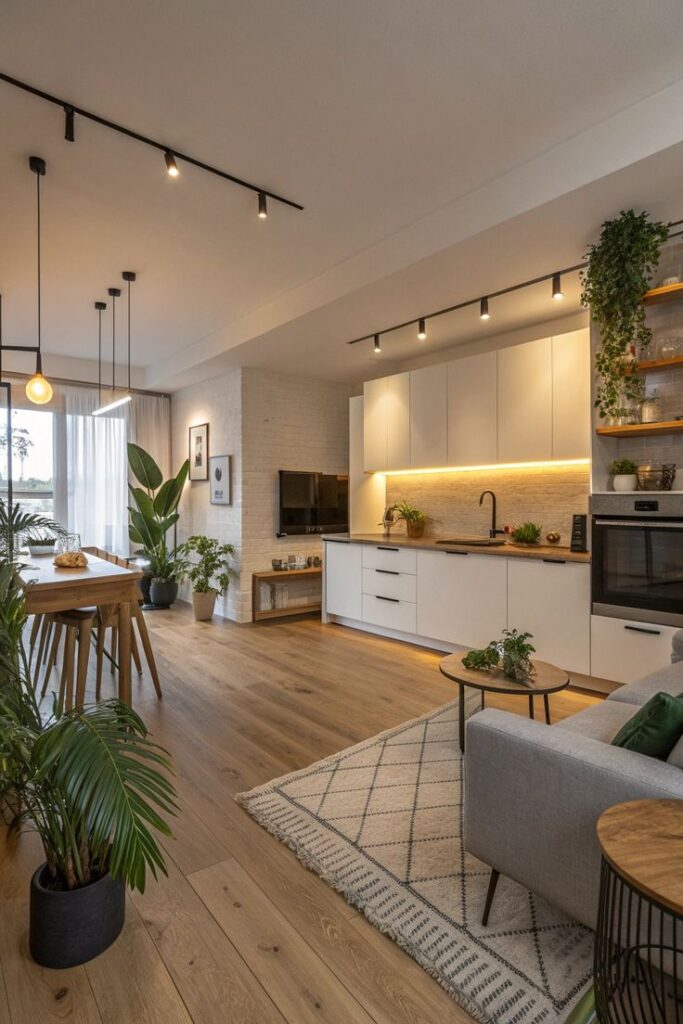
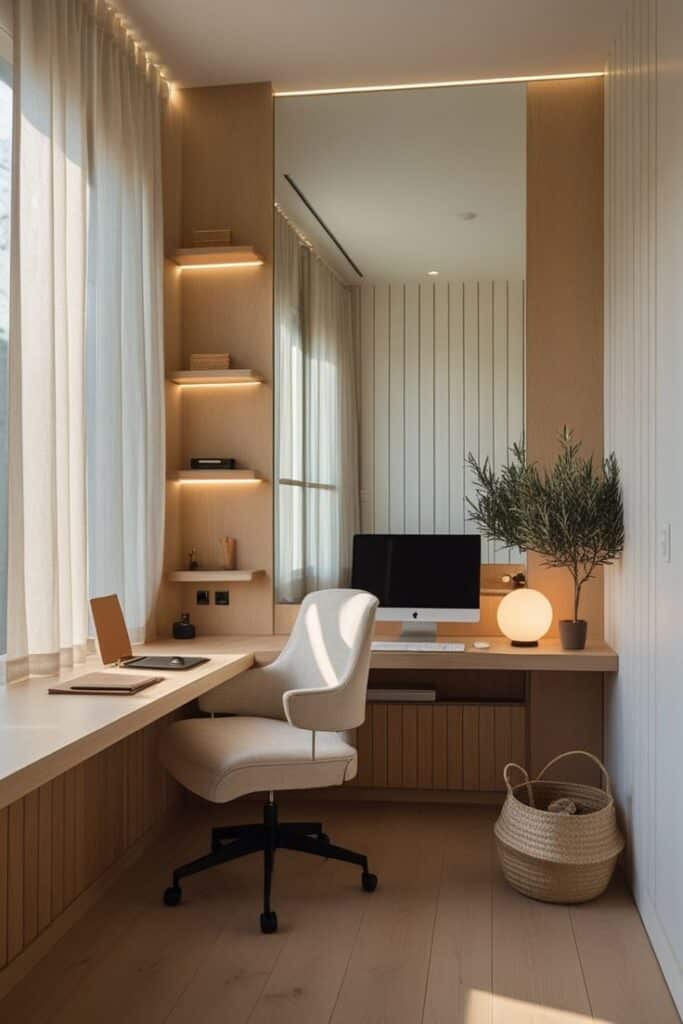
When you can’t expand outwards, expand upwards! Utilizing vertical space is a fundamental principle of small apartment design. Look at your walls, your ceiling, and the space above doors – these are all untapped real estate waiting to be optimized.
Floating Shelves and Wall-Mounted Units
Floating shelves are aesthetic and practical. They provide display space for books, decor, or plants without taking up any floor area. Wall-mounted cabinets or media consoles keep electronics and clutter off the ground, giving a sense of openness. Use shelves strategically in corners or above doorways to maximize every inch.
Tall, Narrow Bookcases
Instead of wide, bulky bookshelves, opt for tall, narrow bookcases. These draw the eye upward, making the room feel taller, and provide substantial storage without dominating the floor plan. Anchor them securely to the wall for safety.
Vertical Gardens and Plant Displays
Bring nature indoors without sacrificing space. Vertical gardens, wall planters, or hanging plant displays add a touch of greenery and life to your apartment, improving air quality and aesthetics, all while utilizing vertical real estate. They create a calming atmosphere and make a strong design statement.
Over-the-Door Storage
Don’t forget the back of your doors! Over-the-door organizers are perfect for shoes, toiletries, cleaning supplies, or pantry items, especially in bathrooms, bedrooms, and utility closets. This simple trick adds a surprising amount of accessible storage.
Strategic Lighting: Illuminating and Expanding
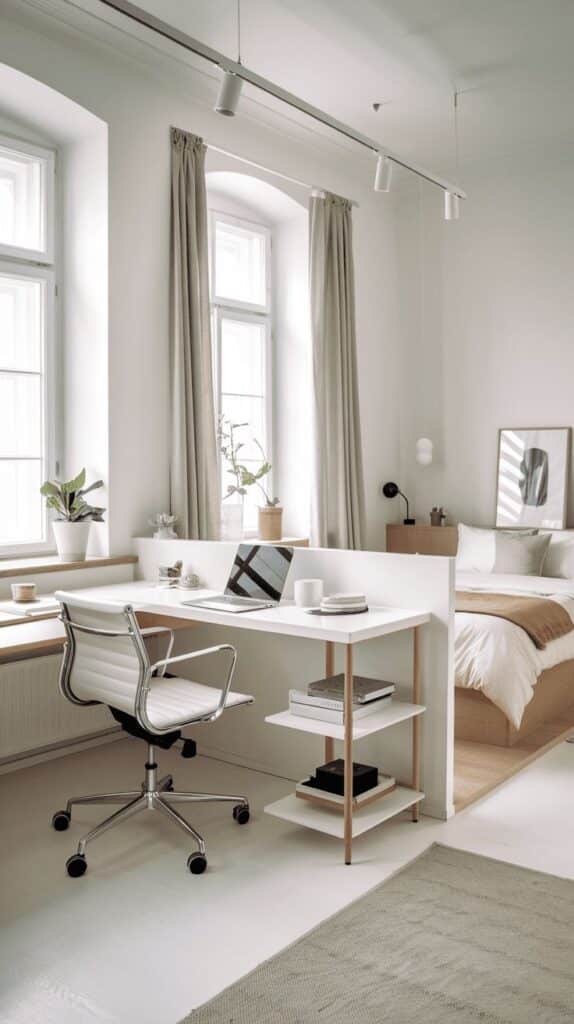
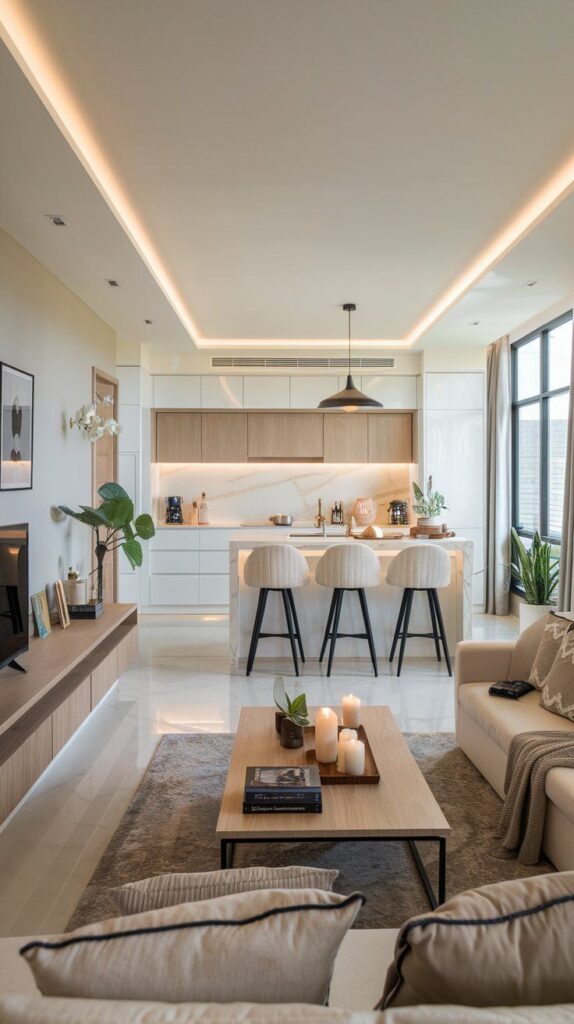
Lighting plays a critical role in how spacious and inviting an apartment feels. In small spaces, strategic lighting isn’t just about visibility; it’s about creating depth, mood, and the illusion of more room.
Natural Light Maximization
Prioritize natural light wherever possible. Keep windows unobstructed by heavy drapes; opt for sheer curtains, blinds, or even nothing at all if privacy allows. Clean windows regularly to ensure maximum light penetration. Placing mirrors opposite windows can bounce natural light deeper into the room, making it appear brighter and larger. Consider daylighting strategies as a core part of your design plan.
Layered Lighting
Avoid relying on a single overhead light, which can cast harsh shadows and make a room feel flat. Instead, create layers of light:
- Ambient Light: General illumination, often from recessed lights, track lighting, or a central fixture.
- Task Lighting: Focused light for specific activities, like reading lamps next to a sofa or under-cabinet lights in the kitchen.
- Accent Lighting: Highlights architectural features, artwork, or plants, adding depth and visual interest.
Wall Sconces and Pendant Lights
Floor and table lamps take up valuable surface and floor space. Wall sconces, track lighting, or elegant pendant lights free up these areas. Install sconces to provide ambient or accent lighting without cluttering side tables. A stylish pendant light can define a dining area or add a decorative touch above a compact seating arrangement. For more insights on this, explore lighting for small spaces.
Smart Lighting Solutions
Embrace smart lighting. Dimmable lights allow you to adjust the ambiance for different activities and times of day. Smart bulbs can change color and intensity, creating various moods and making a small space feel dynamic. You can even program scenes to transition effortlessly from a bright workday setup to a cozy evening retreat.
Clever Color Palettes and Mirror Magic
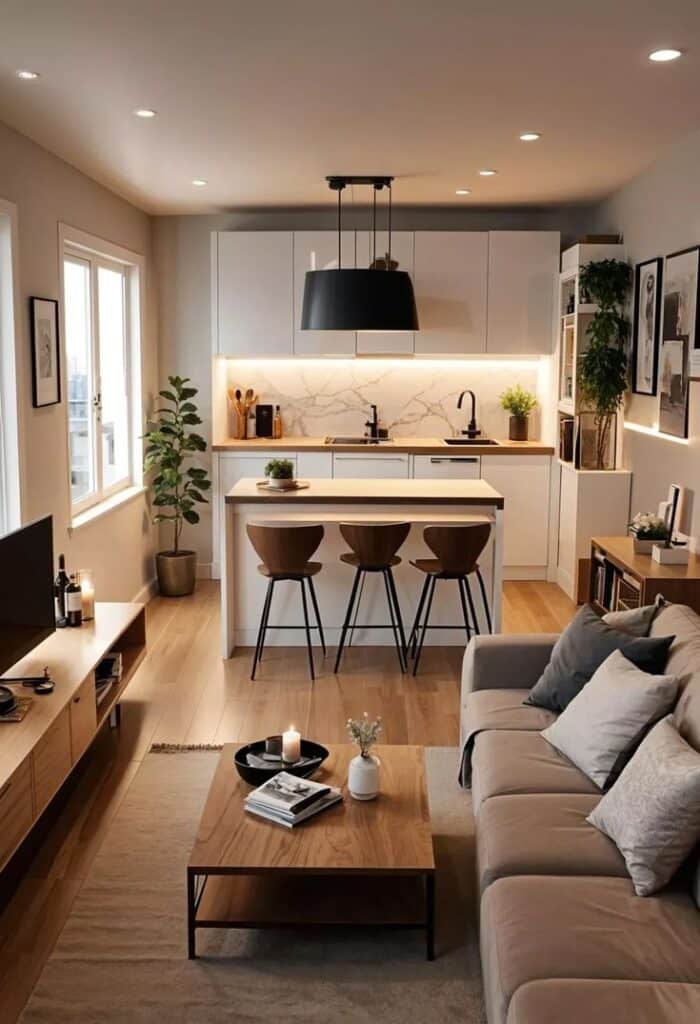
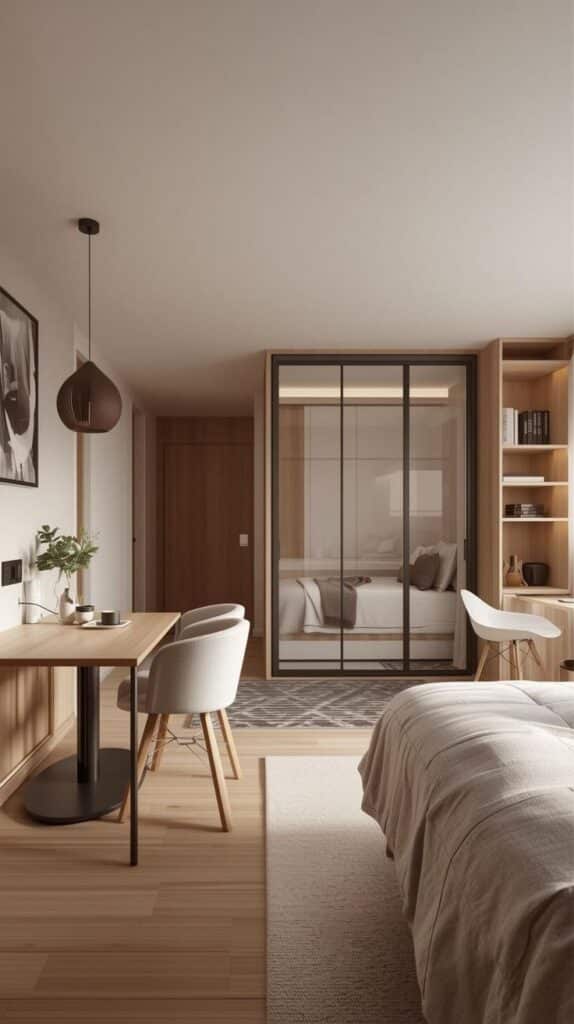
The colors you choose and how you use mirrors can dramatically influence the perceived size and mood of your small apartment. These are some of the simplest yet most effective tools in your small apartment design arsenal.
Light and Neutral Colors
It’s no secret that light colors make a room feel larger and more open. Whites, creams, pale grays, and soft pastels reflect light, creating an airy and expansive atmosphere. Painting walls and ceilings the same light color can blur the boundaries of the room, making it feel taller and wider. This doesn’t mean your space has to be boring; texture and subtle variations in neutral shades can add depth without heaviness.
Strategic Accent Colors
While neutrals form your base, pops of accent color can add personality and define zones without overwhelming the space. Use bold colors on throw pillows, a single piece of artwork, or a small area rug. Avoid painting entire walls in dark, heavy colors, as this can make the room feel cramped and enclosed. The key is balance and intentionality.
The Power of Mirrors
Mirrors are a small space’s best friend. They reflect light and create the illusion of depth, effectively doubling your perceived space.
- Large Wall Mirror: A floor-to-ceiling mirror or a large mirror leaned against a wall can make a dramatic impact, instantly expanding the room.
- Opposite a Window: As mentioned, placing a mirror directly across from a window bounces natural light and views into the room, making it feel brighter and more open.
- Gallery Wall: Incorporate mirrors of various shapes and sizes into a gallery wall to add visual interest and reflective surfaces.
- Furniture with Mirrored Surfaces: Furniture like mirrored dressers or side tables can blend into the background and reflect light, contributing to an open feel.
Smart Storage Solutions: Every Nook and Cranny Counts
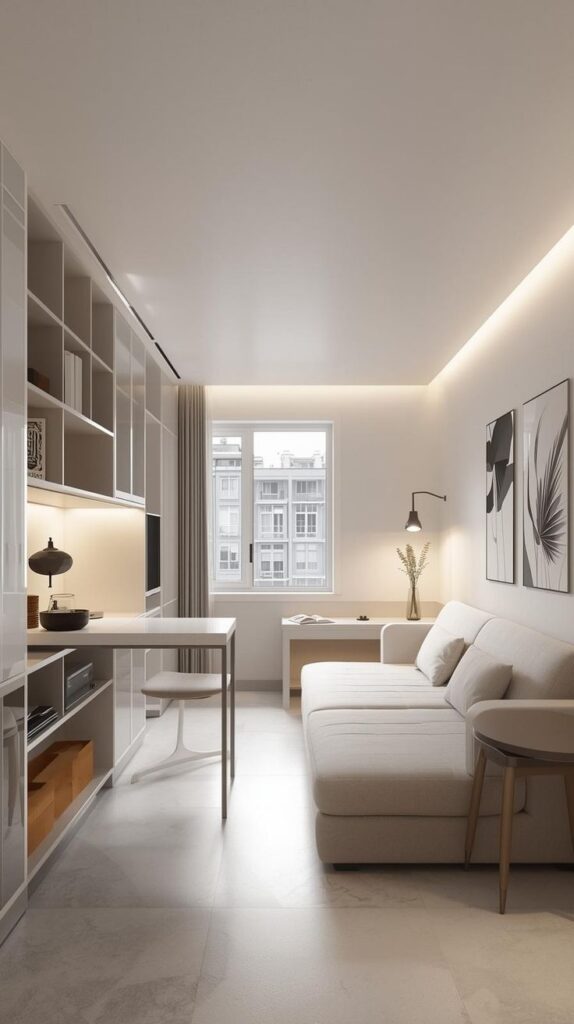
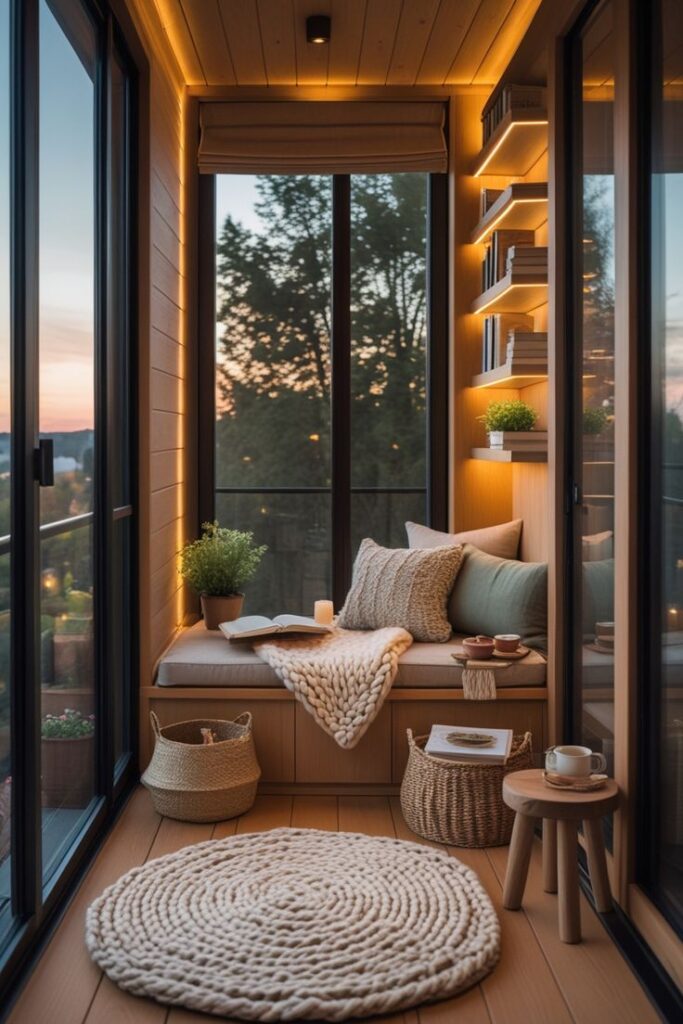
Maximizing storage is non-negotiable in small apartment design. The goal is to keep things out of sight and organized, maintaining a clutter-free environment that feels spacious and serene.
Under-Bed Storage
The space under your bed is prime real estate. Utilize it with rolling storage bins, drawers built into the bed frame, or vacuum-sealed bags for seasonal clothing. This keeps items accessible but neatly tucked away, freeing up closet space.
Built-In and Custom Cabinetry
If your budget allows, built-in cabinetry is a dream for small spaces. Custom units can fit perfectly into awkward nooks, around windows, or even under staircases, providing seamless storage that looks intentional and streamlined. A wall of built-ins can incorporate shelving, drawers, and even a desk, all in one cohesive unit.
Modular Storage Systems
For renters or those on a tighter budget, modular storage systems are incredibly versatile. These systems often consist of stackable cubes, shelves, and drawers that can be configured to fit your specific needs and space. They’re easy to assemble, rearrange, and take with you when you move. For more ideas on how to keep your space tidy, check out these 10 tidy room tips.
Hidden Storage Opportunities
Get creative with hidden storage. Think about:
- Kick Plate Drawers: In the kitchen, the space beneath your lower cabinets (the kick plate) can be transformed into shallow drawers for baking sheets or cutting boards.
- Hollow Furniture: Ottomans, benches, and even some headboards come with hidden compartments.
- Behind Doors: As mentioned, over-the-door organizers are great, but also consider shallow wall cabinets installed on the back of pantry or closet doors.
- Window Seats: A window seat with built-in storage provides both seating and a place to stash belongings.
Zoning Your Space: Creating Defined Areas
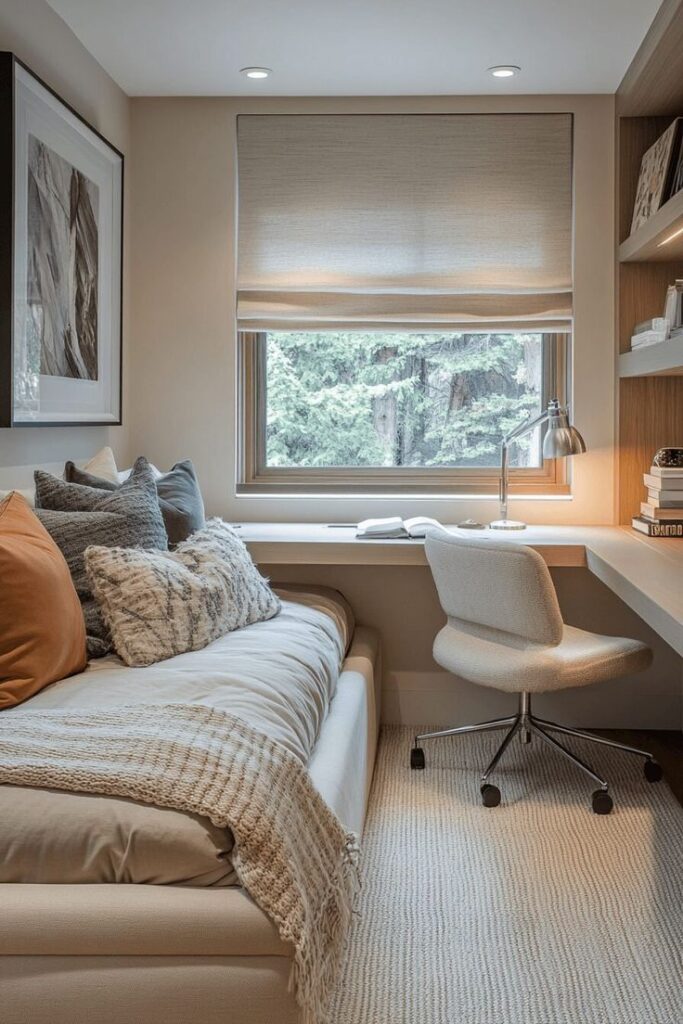
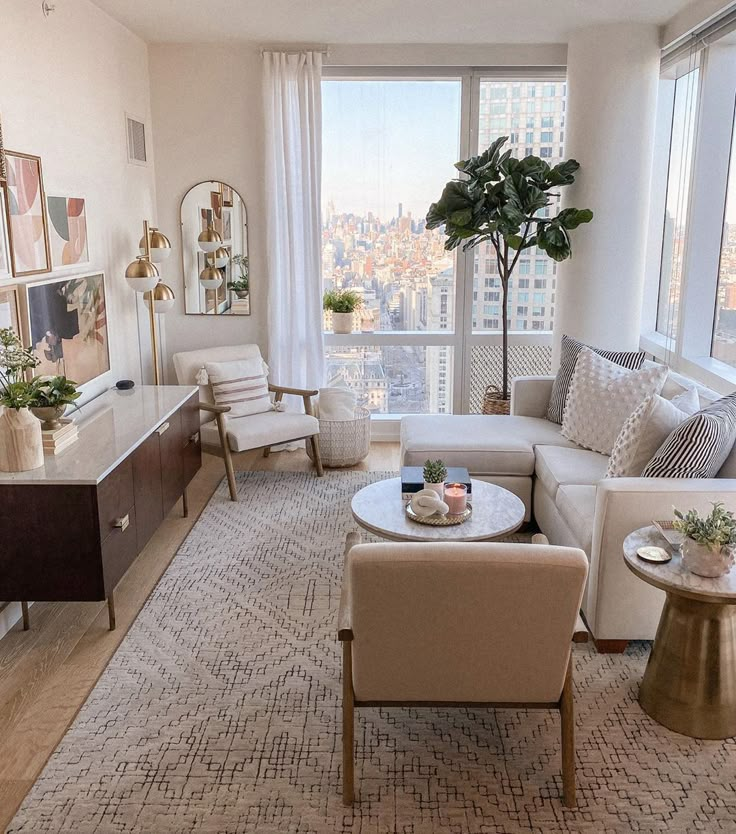
In an open-concept small apartment, it’s easy for everything to blend into one undifferentiated area. Creating distinct “zones” helps a small space feel more organized and functional, rather than just one big room.
Area Rugs
Area rugs are fantastic for defining different functional zones within an open space. A rug in the living area visually separates it from the dining or kitchen zone. Choose rugs that are appropriately sized for each zone – too small, and they look like bath mats; too large, and they cover too much floor, making the room feel smaller.
Room Dividers and Screens
Physical dividers don’t have to be solid walls. Freestanding screens, decorative panels, or even large plants can subtly delineate areas without blocking light or making the room feel enclosed. Look for lightweight, movable options that you can reconfigure as needed.
Furniture Arrangement
The way you arrange your furniture is crucial. Position your sofa with its back facing a dining area to create a clear division. Use a console table behind a sofa to act as a visual barrier and provide extra surface space. Avoid pushing all furniture against the walls, as this can make the center of the room feel empty and the perimeter feel cramped. Instead, create conversational groupings.
Open Shelving as Dividers
A tall, open-backed bookshelf can serve as an excellent room divider. It maintains an open feel by allowing light to pass through while still providing a visual separation and storage for books or decorative items. Just be mindful not to overfill it, which can negate its light-filtering effect.
Personal Touches and Decorating Smart
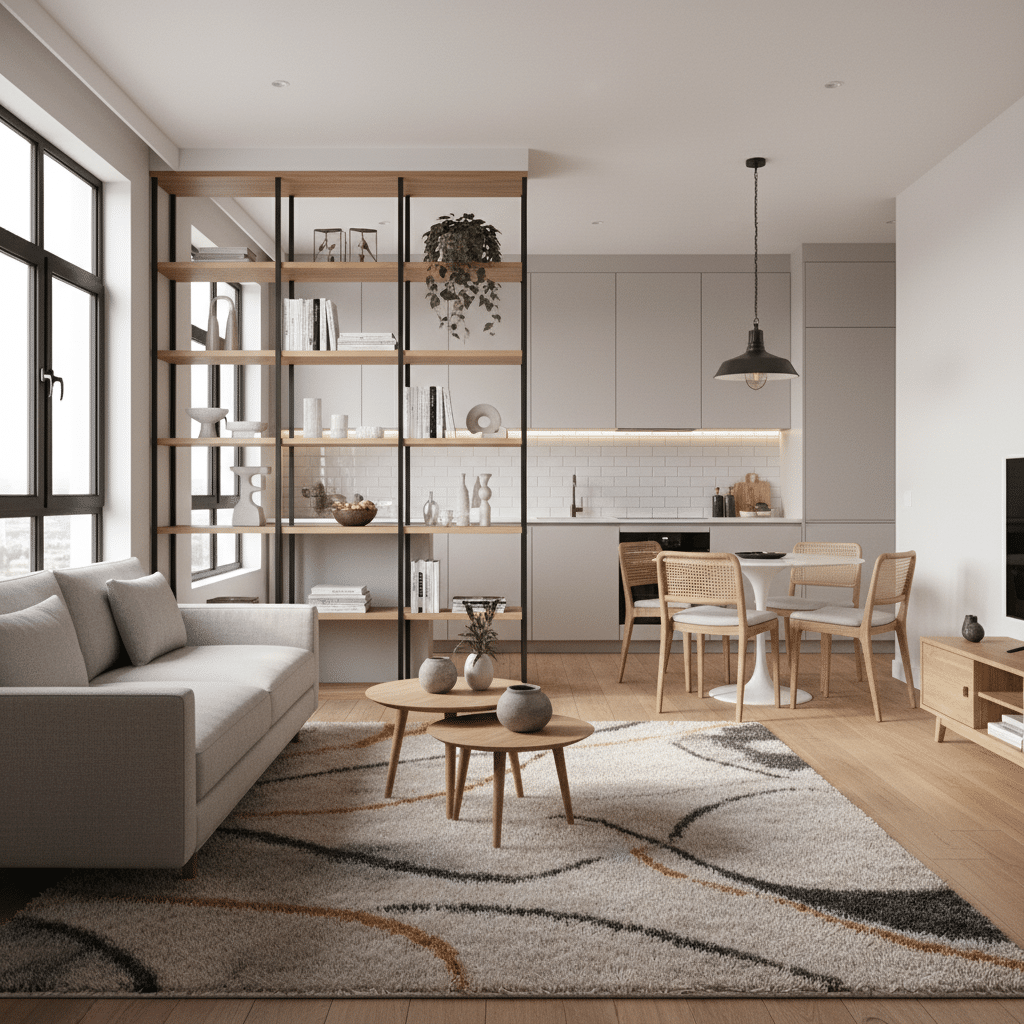
Even in a small space, your apartment should reflect your personality and style. The key is to be selective and strategic with your decor.
Curated Artwork and Wall Decor
Don’t shy away from artwork in a small apartment. A single large piece can make a powerful statement and draw the eye, making the wall feel expansive. Alternatively, a carefully curated gallery wall can add personality without overwhelming. Avoid too many small, disparate pieces, which can look busy. For inspiration, explore various wall art design ideas.
Minimalist Decor Philosophy
Embrace the “less is more” philosophy. Each decorative item should be meaningful and contribute to the overall aesthetic. Instead of many small knick-knacks, choose a few larger, impactful pieces. This creates a clean, intentional look that prevents visual clutter.
Greenery and Plants
Plants bring life, color, and freshness into any space, and small apartments are no exception. Choose plants that fit your space – tall, slender plants draw the eye up, while hanging plants can add a touch of greenery without taking up floor space. Just remember not to overdo it; a few well-placed plants are more effective than a jungle.
Smart Appliances
Invest in compact, multi-functional appliances where possible. For instance, a compact dishwasher or an all-in-one washer/dryer can save significant space in a small kitchen or laundry area. Modern technology offers sleek designs that blend seamlessly into your decor, reducing visual bulk.
Conclusion
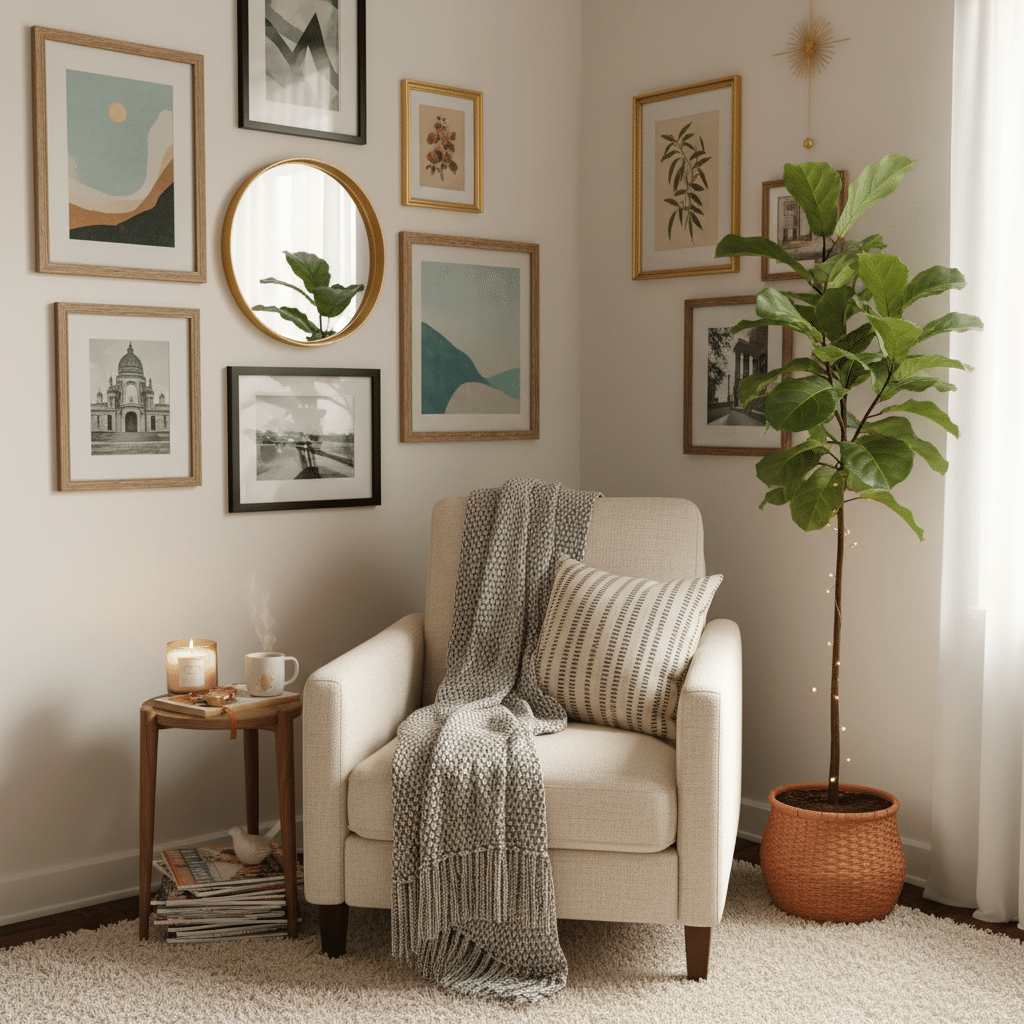
Transforming a small apartment into a functional, beautiful, and inviting home is not just possible – it’s an exciting design challenge. By embracing smart strategies like decluttering, leveraging multifunctional furniture, utilizing vertical space, optimizing lighting, playing with colors and mirrors, and implementing clever storage, you can truly unlock the full potential of your compact living area. Remember, small apartment design isn’t about limitations; it’s about intelligent solutions that create a space perfectly tailored to your lifestyle.
So, take a fresh look at your apartment today. What hidden potential can you uncover? Start with one idea, one room, and watch how even the smallest changes can make a huge impact. Your dream apartment, no matter its size, is within reach!
- 21shares
- Facebook0
- Pinterest21
- Twitter0
- Reddit0


